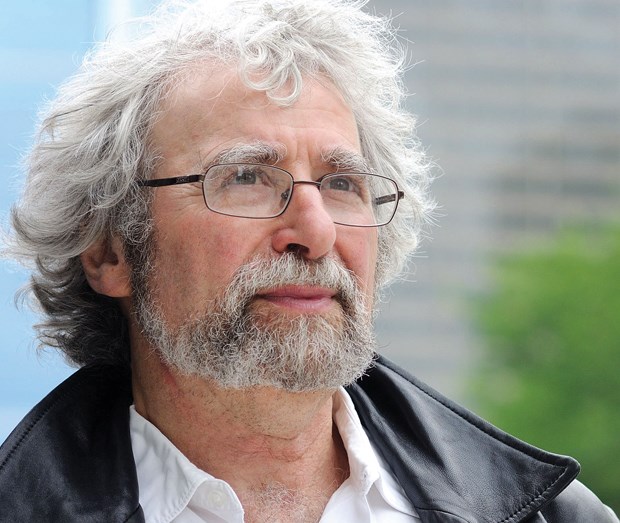Tom Wayman at Congregation Har El, North Shore Jewish Community Centre (1305 Taylor Way, West Vancouver) as part of the Jewish Book Festival (Nov. 27 – Dec. 1). Admission by donation.
Author Tom Wayman’s newest short-story collection is categorized as fiction, but perhaps, just perhaps, its characters and stories are actually closely based on the lives of real people?
“No,” Wayman answers adamantly.
It’s a question the author has been getting frequently.
“I keep saying, ‘No, it’s fiction,’” he explains. “Because who needs trouble?”
While writing The Shadows We Mistake for Love, a short story collection set in Slocan Valley, Wayman says there was one group of readers he was afraid of: his neighbours.
“One of the problems for the book,” he offers somewhat cryptically, “is that it’s hard to write about a community in which you continue to live.”
Dwelling, the book’s first story, takes place in the part of B.C. that, as Truman Capote might put it, even residents of Nelson refer to as “out there.”
The story opens with a woodworker discovering snow falling inside his home.
The snow seems to form out of nothing, drifting from just beneath his ceiling and settling on his floor.
The man (the story never gives us his name) watches his home take on the colours and smells of the landscape.
While other characters in the collection have rich backstories “Dwelling” is deliberately vague.
The man’s truck is a pickup. His dinner is “some soup.”
We ultimately learn about the man in an almost voyeuristic way as we observe his loneliness and his unwillingness to directly address the phenomenon taking place in his home or elsewhere.
We’re about halfway through the story before our faceless woodworker asks himself what may be the key question: “Am I losing my mind?”
That slow boil is crucial to Wayman’s writing style.
He compares much of contemporary fiction with a form of TV writing where characters are designed to be two-dimensional and aerodynamic, offering minimal wind resistance as the writer gallops through the plot.
“I like fiction that’s slower-paced. I think that’s the one thing that fiction can do that television can’t … is provide all that detail and give a sense that these character are rounded, are fleshed out in an actual place in an actual time,” Wayman says.
Despite the fantastical happenings of “Dwelling,” the story emphasizes the man’s reaction to the house, not the house.
Another story in the collection, What We Know About Our Neighbours, begins with a line that could have opened an H.P. Lovecraft tale.
“We encountered the building that should not have been there about three in the afternoon.”
The most important word in that sentence is “we.”
After the first line we spend more than 10 pages getting to know the trio of characters, how they make a living (or don’t), how they became friends, their children, love lives, interests and quirks. It’s difficult to imagine Lovecraft diverting from the mystery building to discuss buying mushrooms at the grocery store.
The story’s narrator has a few things in common with Wayman, as both were teachers at David Thompson University Centre.
That job eventually introduced the author to Winlaw, B.C., where the bulk of the book was written.
The Shadows We Mistake For Love recently earned the Diamond Foundation Prize for fiction at the 2016 Western Canada Jewish Book Awards.
Asked if there’s anything that makes it a Jewish book, Wayman once more adamantly answers: “No.”
However, on discussing the matter further, Wayman’s memory turns to a Nelson production of Fiddler on the Roof, consisting of a cast largely made up of the region’s Doukhobor community.
Like Fiddler, The Shadows We Mistake For Love is somewhat about a “remote rural community and the strong characters” therein.
While it’s not exclusively Jewish, there is certainly some overlap.”
A former Vancouver resident, Wayman opted to “get out of town” in the late 1980s and contemplated where he’d been happiest.
“I realized I was always happy in the West Kootenay area,” he says. “For a writer, it’s kind of a paradise.”
Wayman is slated to appear at the North Shore Jewish Community Centre on Sunday to discuss his book, which is fiction.



